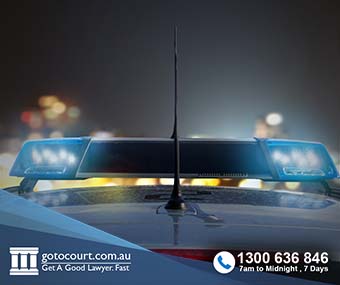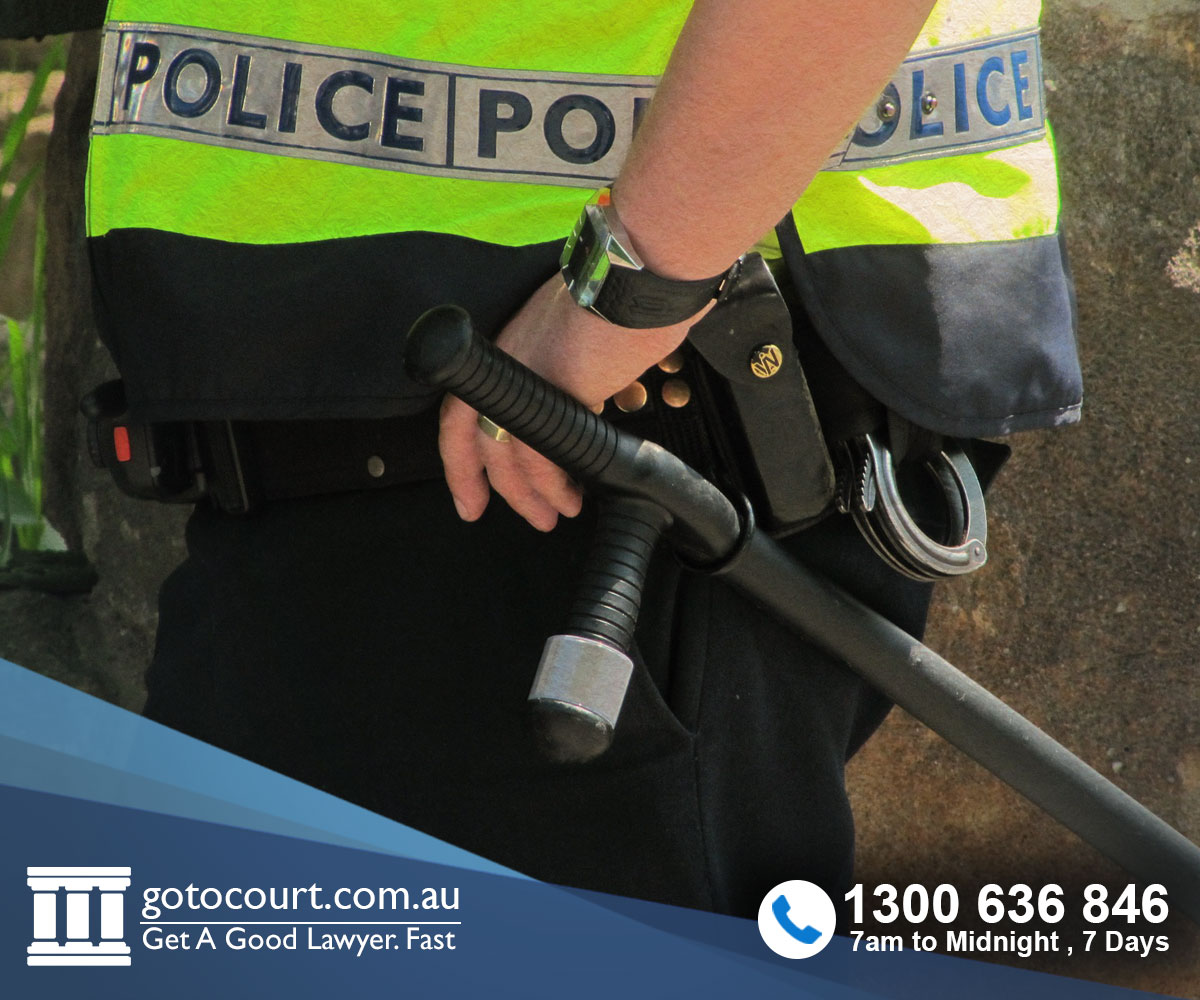Call our lawyers
now
or,
have our lawyers
call you
Reporting Police Misconduct in Australia
Updated on Nov 08, 2022 • 8 min read • 846 views • Copy Link
Reporting Police Misconduct in Australia
Australia takes police misconduct and corruption very seriously. In all Australian states and territories there are avenues for the public to make complaints about police behaviour and conduct.
Serious police misconduct is conduct which the public would expect the police officer to lose their job over or result in criminal charges. The process of reporting police misconduct varies depending on the state and territory.
In most states and territories, complaints can be made anonymously. If a complaint is made anonymously, though, it is difficult to be investigated as the investigating authorities are unable to contact the you for more information.
Queensland
Under the Crime and Corruption Act 2001 (Qld), Queensland takes allegations of police misconduct very seriously. There are three areas where it can occur:
- Misconduct arising from customer service issues;
- Improper, disgraceful or unbecoming behaviour which does not meet the community standards of behaviour for police officers (police misconduct); and
- Conduct undertaken while the police officer was performing their duties which is criminal or serious enough to justify dismissal (corrupt conduct).
Complaints can be made in Queensland to any of the following:
- In person at a police station;
- Online directly to police; or
- To the Crime and Corruption Commission.
New South Wales
NSW police are expected to act with integrity and in a professional manner at all times. NSW must comply with the NSW Police Force Code of Conduct and Ethics.
Anyone in NSW has the right to complain about the NSW police misconduct if concerned or dissatisfied over a law enforcement officer’s conduct or behaviour. In NSW, there are two levels of seriousness when it comes to police misconduct.
These levels of seriousness determine how the complaint is investigated and handled as the following:
- Complaints of unreasonable use of force, traffic offences, unsatisfactory levels of service and beaches to the police Code of Conduct and ethics are dealt with by the NSW police Customer Assistance Unit or the NSW Ombudsman; and
- Serious allegations of assault, accepting and soliciting bribes, interfering in investigations, and crimes that carry a minimum penalty of five years are handled by the Police Integrity Commission.
More information about how you can lodge a complaint and what constitutes police misconduct can be found in our dedicated article, Reporting Police Misconduct in New South Wales.
Victoria
Victorian police misconduct can be reported in accordance with the Victoria Police Act 2013 (Vic). Under Victorian law, it includes the following behaviour:
- Behaving disgracefully or improperly while on or off-duty;
- Conduct which discredits the Victorian police force;
- Conduct which decreases the public’s confidence in the Victorian police force;
- Committing an offence which carries a jail term; or
- Failure or refusal to perform duties.
Anyone can make a complaint alleging police misconduct in Victoria.
The process of making a complaint follows three increasing levels of seriousness:
- For minor, less serious police misconduct a complaint can be made directly to that police officer’s station commander;
- For more serious allegations of police misconduct, a complaint can be made to the Professional Services Command. The Professional Service Command is responsible for education and training of police officers, and investigates allegations of unethical behaviour; and
- For serious allegations involving police corruption and serious misconduct, a complaint can be made to the Broad-based Anti-corruption Commission.
Reporting Police Misconduct in Victoria contains more specific information about how to lodge a complaint.
Western Australia
Police in Western Australia are obliged to follow the Police Code of Conduct and the Police Force Regulations 1979 (WA). Complaints, including allegations of unreasonable use of force and corrupt behaviour, are dealt with in three increasing levels of seriousness:
- Where a person may be dissatisfied with a police officer’s general conduct, they can complain directly to the police officer in charge at that police station;
- For misconduct involving possible breaches of the Police Code of Conduct and ethical standards, a person can make a complain to the Police Complaints Unit; and
- For serious allegations of police corruption, complains should be made to the Corruption and Crime Commission.
Complaints about administrative handling or the division of police resources should be directed to the WA ombudsman within 12 months, unless there is a compelling reason for the delay. More information about how to lodge a complaint can be found in our dedicated article, Reporting Police Misconduct in Western Australia.
Reporting police misconduct in Tasmania
Reporting and investigating allegations of police misconduct are governed under the Police Services Act 2003 (Tas), the Ombudsman Act 1978 (Tas) and the Integrity Commission Act 2009 (Tas).
Misconduct allegations which are general in nature can be reported directly to police. More serious allegations, such as corruption, can be made directly to the ombudsman or the Integrity Commission.
Strict time limits apply when reporting in Tasmania. Unless exceptional circumstances apply, you must lodge a complaint to Tasmania police within six months of the alleged misconduct. Similarly, a complaint must be lodged to the ombudsman within two years of the incident.
To find out more about how you can lodge a complaint against Tasmanian police for misconduct or corruption, read our dedicated article, Reporting Police Misconduct in Tasmania.
South Australia
Complaints are handled either by the South Australian police force or the ombudsman under the Police Act 1998 (SA), Police (Complaints and Disciplinary Proceedings) Act 1985 (SA) and Police Regulations 1999 (SA).
The SA ombudsman is completely separate and impartial to the South Australian police.
The process of the complaint increases in seriousness in accordance with the following three steps:
- Informal investigation – these are conducted by the South Australian police and are investigations of the most minor of police misconduct complaints;
- Preliminary investigation – these are internal investigations conducted by the SA police but overseen by the ombudsman;
- Full investigation – these are investigations of serious allegations of police misconduct or where a more thorough investigation is required. These types of investigations are carried out by the SA ombudsman.
To find out more about lodging a complaint in SA, our article, Reporting Police Misconduct in South Australia analyses this process in-depth.
Northern Territory
There are several avenues for reporting police misconduct of NT police:
- Make your complaint to a different NT police officer;
- Attend a police station in person and make your complaint;
- Call 131 444; or
- Complete this online form with all of the details of the alleged misconduct.
Depending on the nature and seriousness, complaints are either handled by police under the Police Administration Act (NT) or by the impartial ombudsman under the Ombudsman Act (NT). If a complaint has been investigated by police, a prosecution of a NT police officer must start within two months of the alleged misconduct. Similarly, a breach of discipline action must be commenced within six months of the breach.
The NT ombudsman can only investigate conduct of a NT police officer in the exercise or performance of their duties for the NT police. The ombudsman cannot investigate the officer’s conduct while they were off-duty. Unless there are significant reasons to investigate, the ombudsman will refuse to investigate an allegation of police misconduct if more than one year has elapsed since the conduct in question.
To find out more about lodging a complaint, our dedicated article, Reporting Police Misconduct in the Northern Territory has more information.
Australian Federal Police and Australian Capital Territory
The ACT police force are considered part of the Australian Federal Police (AFP). For this reason, the procedures for reporting police misconduct are the same. Complaints are governed by the Australian Federal Police Act 1979 (Cth).
ACT police and the AFP must act in accordance with the AFP Core Values and AFP Code of Conduct. Behaviour or conduct contrary to these principles would be considered police misconduct and can be subject to a complaint.
Anyone can make a complaint about an ACT police or AFP officer’s misconduct.
There are three main tiers of making a complaint:
- If the misconduct is minor in nature, a complaint can be made to the particular officer’s manager or to the AFP Professional Standards;
- If the misconduct is more serious in nature or you are unhappy with how the AFP Professional Standards have handled the complaint, you can further complain to the Commonwealth Law Enforcement Ombudsman;
- For serious misconduct allegations such as corruption, a direct application to the Australian Commission for Law Enforcement Integrity can be made.
Complaints against AFP or ACT police misconduct can be made regardless if the conduct occurred outside Australia, the police officer was off-duty, or if you cannot specifically identify the police officer involved.
More information can be found in our dedicated article, Reporting Police Misconduct in the ACT.
If you require legal advice or representation in any legal matter, please contact Go To Court Lawyers.


Affordable Lawyers
Our Go To Court Lawyers will assist you in all areas of law. We specialise in providing legal advice urgently – at the time when you need it most. If you need a lawyer right now, today, we can help you – no matter where you are in Australia.How It Works








1. You speak directly to a lawyer
When you call the Go To Court Legal Hotline, you will be connected directly to a lawyer, every time.


2. Get your legal situation assessed
We determine the best way forward in your legal matter, free of charge. If you want to go ahead and book a face-to-face appointment, we will connect you with a specialist in your local area.


3. We arrange everything as needed
If you want to go ahead and book a fact-to-face appointment, we will connect you with a specialist in your local area no matter where you are and even at very short notice.























